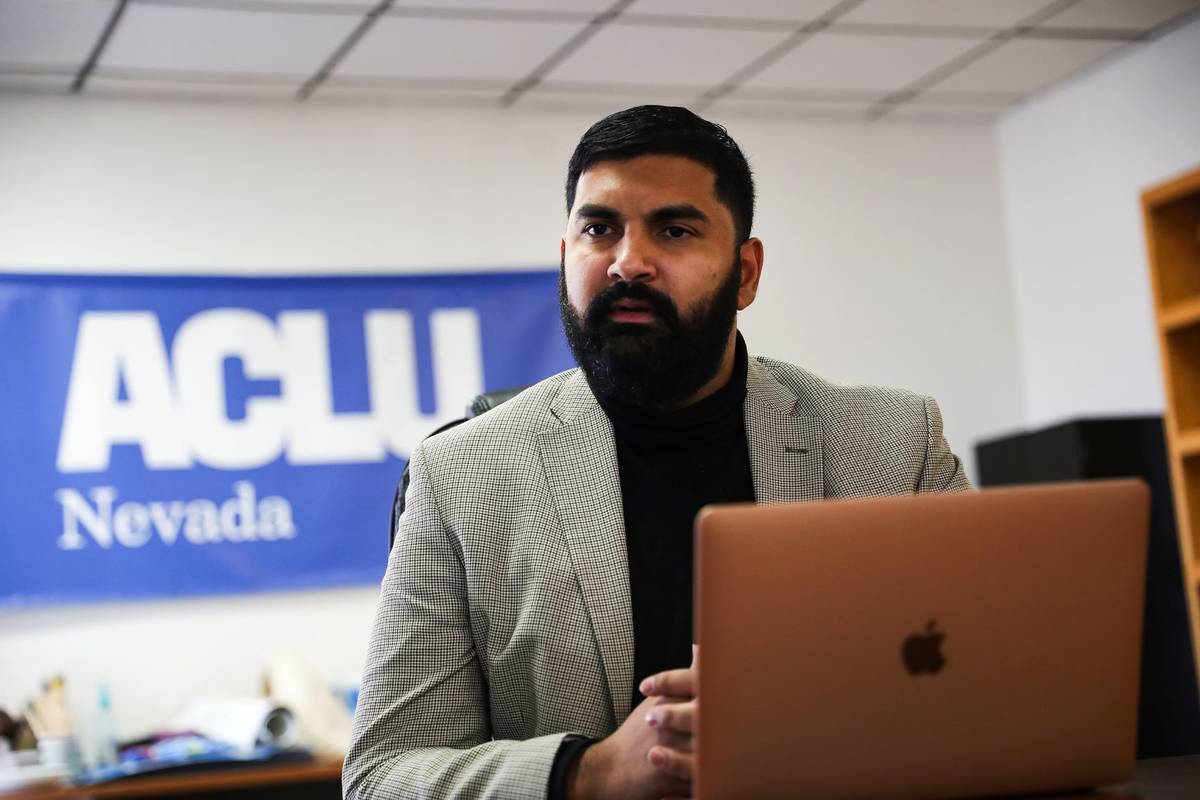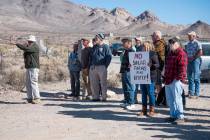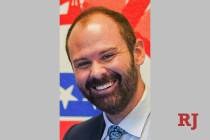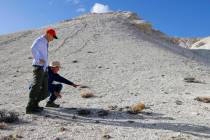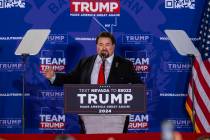Progress on Nevada police reform slow, advocates say
Nevada’s top elected officials promised reforms last year in the wake of the high-profile police killings of George Floyd and Breonna Taylor amid national uproar calling for change.
But with just one week remaining in Nevada’s biennial lawmaking session, advocates say progress has been minimal at best.
“Those promises have not been fulfilled,” said Athar Haseebullah, executive director of the ACLU of Nevada.
Lawmakers introduced several police reform bills this session aimed at bringing about more oversight of departments, heightened training standards for officers and tighter restrictions on how and when police can use deadly force.
But the majority of those bills have been pared, heavily changed or simply killed over the course of the legislative session that started on Feb. 1.
Change at special session
This year’s regular legislative session followed a special session called last August to, in part, address concerns about police brutality and accountability amid the public unrest that also failed to satisfy those pushing for change. Advocates praised the chokehold ban passed during the special session but raised concerns that the changes didn’t go far enough to quell the public’s concerns. Lawmakers said they would take a deeper look at reforms this year.
But Haseebullah said Las Vegas hasn’t seen much police reform at all in the past year and accused legislators of dropping the ball on empty promises made during the 2020 election.
The elected officials pushing the reforms this session said that tweaking legislation is just part of the process after discussions with both advocates and police.
Attorney General Aaron Ford said those talks factored into his proposal to limit no-knock warrants, a bill that he said was a direct response to the killing of Breonna Taylor last year.
Despite calls for a ban, Ford said he understands that he may not know all of the reasons when a no-knock warrant might be legitimately needed. Senate Bill 50 passed unanimously in the Assembly and Senate and awaits a signature from the governor.
“It’s important to have the voices of the people who are experienced in those areas in the room,” Ford said.
Significant changes seen
Even with tweaks to her bills, Sen. Dallas Harris, D-Las Vegas, believes proposals moving forward this session will still bring about significant change in how police interact with the public.
Harris is pushing two of the most wide-ranging policing reform bills this session, Senate Bills 212 and 236. SB 212 would require police agencies to submit data on use-of-force incidents to the state each year and would put several restrictions on how police could respond to protests, while SB 236 would create an early warning system to identify signs of bias in police officers.
“We’re always striving to go to the ideals that we espouse, and we took a huge leap forward this session,” Harris said. “But there’s always, always more to do.”
Beyond the police-specific legislation, lawmakers are pushing proposals to reform other parts of the criminal justice system, including changing most minor traffic and jaywalking tickets from criminal misdemeanors to civil infractions.
“If you put all of these things together, it’s huge,” Harris said.
Clark County Sheriff Joe Lombardo said many of the changes being discussed this session are “policies that we have living in Metro today.”
Metro has used body cameras for years, though they’re currently only provided for officers who work with in uniform with the public daily. A bill that’s being considered by legislators would require body cameras for all officers who interact with the public, including those who are called to work at protests or special events such as New Year’s Eve.
“You get a lot of kicking and screaming with these kinds of things and, ‘We won’t be able to do our job and people don’t trust us,’ and that’s the perception, but in reality it’s what you’re going to do to get the public’s confidence,” Lombardo said of police officers who oppose body cameras. “It’s part of that outreach in the community for them to trust us, and we’re doing exactly what we’re saying we’re doing.”
Lombardo said that after last year’s active summer, the department has changed the way it approaches protests. It always has an officer approach the organizers to discuss the plan and how everyone can stay safe, and they try to “put ourselves in the position of the protester,” he said.
“None of that should be in secrecy,” Lombardo added. “I think it’s better off if we make it public and transparent so people know what to expect if they don’t comply with what direction is given.”
Getting cops on board
Getting that law enforcement buy-in is a big part of the negotiations, said Assembly Speaker Jason Frierson, D-Las Vegas.
“That’s the kind of cultural change we want,” Frierson said.
Frierson said he recognizes that lawmakers aren’t able to please all sides but added that there is value in advocates pushing for change as they can build public consensus behind their efforts.
But Haseebullah, from the ACLU, pointed to the push to ban the death penalty in Nevada as a prime example of Democrats being unwilling to take major steps.
Abolishing capital punishment is part of the Democrats’ national platform. But for a third straight session, and twice with Democrats holding a lawmaking trifecta, a proposal to outlaw it in Nevada failed after Democratic Gov. Steve Sisolak signalled that he wanted to keep the practice on the books for extreme cases such as mass shootings and terrorism.
“When there’s not even a commitment to do something as basic as eliminating the death penalty, it’s very hard to oversell to the community that there’s been transformative change, as promised,” he said. “I recognize we’re heading into a toxic 2022 election, but that’s not an excuse to engage in actions that will end up ultimately taking human life.”
Frustrated by the lack of progress on police reform, activists are turning to more grassroots movements to push for change at the community level.
“What we’ve found as we organize with the people is that by lessening the interactions with police, we’ve been able to put a little bit of a dent in keeping people safe from those deadly interactions that seem to happen disproportionately with Black and brown people,” said Tanisha Freedom, a longtime activist against police brutality.
For whatever reason, Democrats, many of whom campaigned on police and criminal justice reforms, are not living up to their promise, said Monique Normand, a licensed social worker in Reno and board member of the Coalition Against the Death Penalty.
Floyd’s death brought the issues of police brutality against the Black community to the national spotlight in unprecedented fashion. But one year later, Normand worries that the national uproar is fading, and with it, the moment to make meaningful changes.
“I’m Black every day. That doesn’t change for me,” said Normand. “It doesn’t change for a lot of people. It’s not just something in the moment or something that passes.”
Norman, who grew up in Las Vegas, wants other advocates to keep pushing the envelope, to let Democrats know “that we mean business.”
Normand said Democrats have taken the Black vote for granted. And wielding that power, she said, might finally get politicians’ attention.
“We don’t have to vote for anyone,” Normand said. “We can withhold our votes. Our votes matter. Our lives matter.”
Contact Capital Bureau Chief Colton Lochhead at clochhead @reviewjournal.com. Follow @ColtonLochhead on Twitter. Contact Alexis Ford at aford @reviewjournal.com or 702-383-0335. Follow



